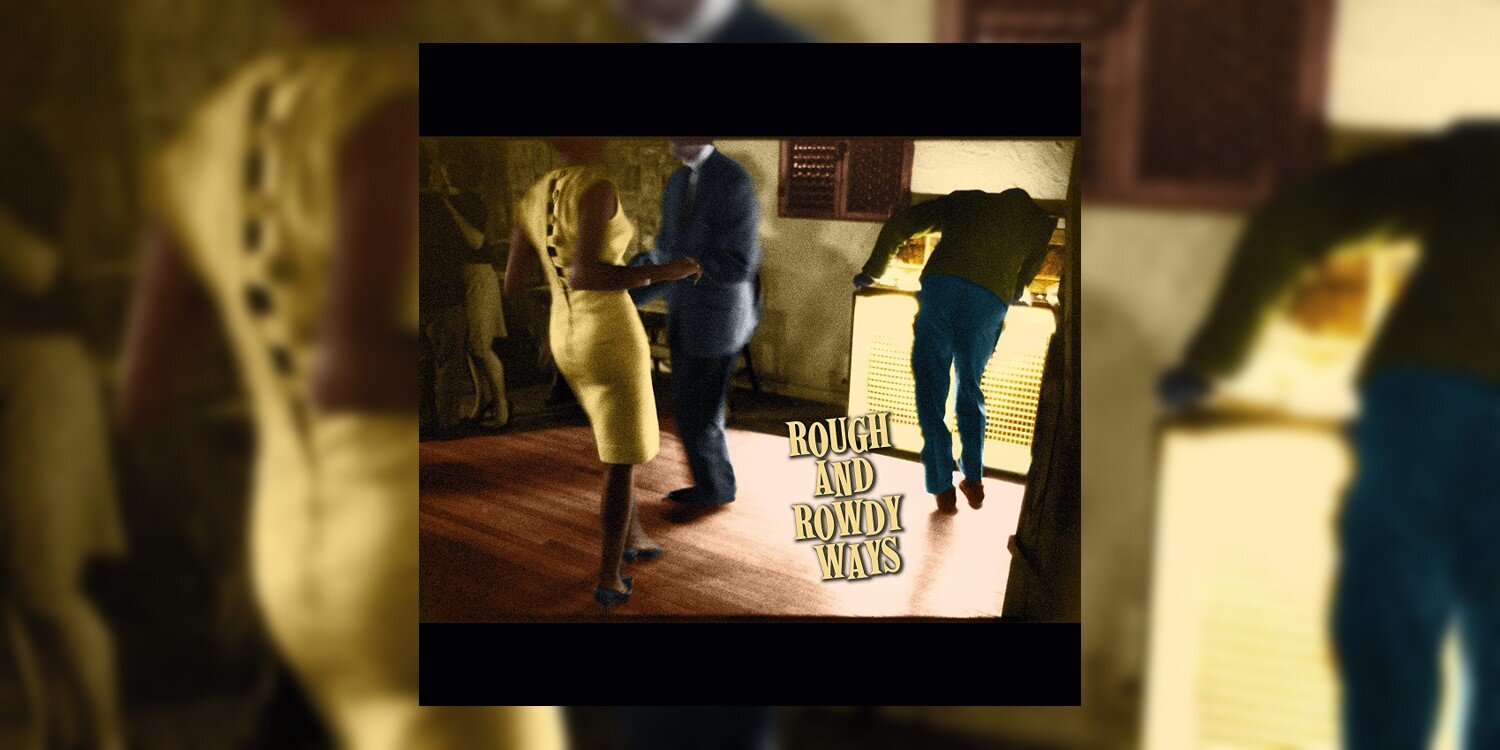Bob Dylan
Rough and Rowdy Ways
Columbia
Listen Below
Some things never change. To be a Bob Dylan fan is to live in limbo. There is no truth, and what you are told is truth is mostly lies. The cottage industry of books and Dylan’s self-created and curated Bootleg Series is impossible to rival (I leave that to Neil Young). Fans—and the hardcore, we call ourselves Dylanologists—must accept that the truth is hidden and always has been. Bob Dylan is all narrative and mystery.
But if you study up or listen to his records long enough, the narrative of Dylan’s mystery is solved. To accept the not-knowing is to understand. There are those out there that have deemed it nonsense, I have one in my own family (hi, Dad!). But with Bob you must engage and learn where he comes from: folk tales, hand-me-downs, and stolen stories. He’s always been a political writer, but by the late 1960s he claimed to have “never written a political song” to avoid being pigeonholed and bothered. It’s the biggest lie he continues to tell and we all know it isn’t true.
Here’s what I know is true. Rough and Rowdy Ways is Dylan’s 39th studio album. That in itself is a feat of strength and life. It’s his first record of original music since 2012’s Tempest. The three previous records were covers of crooner standards. Recording and touring them served his vocals well. At 79, Dylan’s voice is sharper than expected and full of so much life, it takes me by surprise.
Just like everyone else I was shocked when he released “Murder Most Foul,” a 17-minute long ballad about the assassination of JFK. It surprised us all by becoming Dylan’s first No.1 hit. Then another song came along, “I Contain Multitudes,” the self-serving and wink of a title stolen from a line in Walt Whitman’s poem Song of Myself, 51. And with another single, “False Prophet,” came the announcement there was a new Bob Dylan record on the horizon: Rough and Rowdy Ways was to be released June 19th on Columbia.
“False Prophet” excited me for a record of up-beat stomping blues, but the album takes it slow. The quickest track is a leisurely chug; “Goodbye Jimmy Reed” is a tribute to the late blues singer, a hero of Dylan’s who died in 1976.
The music is almost simple, mostly acoustic with thick blues stuffed in every wrinkle. Dylan doesn’t sing. It’s poetic delivery that plants every sentence firmly in the ground. Each will sprout, spreading new roots in the world of Dylan discovery as we break down his every breath and assign it meaning. Each song needs annotation. To dissect them within the first three days of hearing these songs is a task for no woman. My summer has planned itself.
The title is a tribute to a Jimmie Rodgers song from the 1920s, “My Rough and Rowdy Ways.” Dylan’s lust for the past, even before he had one, is what gives his writing depth. He twists and turns what happened to others—”The Lonesome Death of Hattie Carroll,” “Only A Pawn In Their Game,” “Hurricane,” “Joey”—as a background to insert himself into. It’s all about narrative.
Approaching 80, Dylan now slips himself into the stories of his past and next to great giants that exemplify his confidence. On “Crossing The Rubicon” he’s next to Julius Caesar who crossed the same river; on “Key West (Philosopher Pirate)” he was “born on the wrong side of the railroad tracks / like Ginsberg Corso and Kerouac;” and on “Mother of Muses” he name-drops generals Patton, Lee, Zhukov, and Montgomery inviting us to dig.
It’s “Black Rider” that acts as a warning sign and realization that he (might) know he’s no longer leading the way: “Black rider black rider you’ve been living too hard….The road that you're on, same road that you know / Just not the same as it was a minute ago.”
The biggest surprise of Rough and Rowdy Ways is the interview he did with The New York Times a week before its release. To see him say, “It sickened me no end to see George tortured to death like that. It was beyond ugly. Let’s hope that justice comes swift for the Floyd family and for the nation” gave me great hope and peace of mind.
When Dylan stopped talking to the press regularly he gave up a sort of power. With fame comes responsibility: the ability to broadcast and inform. The narratives of his catalog have informed us all one way or another. And over the years his silence has been just as powerful as his voice.
I have so many questions I know will be unanswered forever: who did he vote for? What does he talk about behind closed doors? What does he really think? The asking is the limbo we live in. It feels a lot like daily American life these days—COVID-19, the corruption of the 2020 election, and a nation protesting savage police brutality after the death of yet another black civilian, George Floyd, at the hands of police—in Dylan’s home state no less.
Rough and Rowdy Ways is a portrait of how Bob Dylan sees himself. It mirrors the nature of his age and organically is a bit boring (am I allowed to say that?). This time when he morphs the past, he shimmies it into our present in a way only he knows how. The mystery of understanding Dylan is unspoken this time. He knows it and you know it too.
Notable Tracks: “False Prophet” | “Goodbye Jimmy Reed” | “My Own Version of You”
Note: As an Amazon affiliate partner, Albumism may earn commissions from purchases of vinyl records, CDs and digital music featured on our site.
LISTEN:


